If Democrats win control of the House, U.S. agriculture will face a very different set of committee leaders and approaches to regulatory policy than it has since the chamber has been under GOP control.
Minnesota’s Collin Peterson, the likely chairman of the House Agriculture Committee, is a familiar and friendly face, a staunch defender of farm programs who already has chaired the committee for four years and who represents one of the nation’s largest agricultural districts.
But he is very much the exception in outlook and background when it comes to the Democrats who would likely chair the six committees most important to writing or funding critical areas of agriculture and food policy: Agriculture, Appropriations, Energy and Commerce, Judiciary, Natural Resources and Ways and Means.
Three would be chaired by lawmakers from the New York City area and one is from Massachusetts. Only one of the new chairmen, Peterson, would represent a rural or agricultural area.
More importantly for agriculture, with the exception of Peterson, the new Democratic chairmen generally favor heavier regulation of most industries, including agriculture, and all have stellar records with the League of Conservation Voters, an arm of the environmental movement that tracks congressional votes.
All but Peterson also have top scores from Food Policy Action, a coalition of groups that favor tougher environmental and consumer regulation and promote smaller scale agriculture.
The likely chairmen include Jerry Nadler, D-N.Y., who would replace Bob Goodlatte, R-Va., as the leader of the Judiciary committee, with jurisdiction over immigration policy, including the H-2A program for farm labor.
Goodlatte is a former chair of the House Agriculture Committee and tried to reform H-2A to meet the demands of farmers. Nadler, who hotly opposed Goodlatte’s farm labor proposal, calling it “immoral," spent his early years on a New Jersey poultry farm where he says his father railed against the policies of President Dwight Eisenhower and Agriculture Secretary Ezra Taft Benson. Nadler says that experience with his dad led to his own interest in politics. “Whatever they did made it impossible for chicken farmers to produce eggs without losing money,” he once told The New York Times.
Another key committee, Energy and Commerce, which has jurisdiction over FDA and EPA, could be chaired by Frank Pallone from New York’s New Jersey suburbs. He wants to crack down on food labeling.
These committees, plus House Appropriations, Natural Resources and Ways and Means, will have to be the focus of agriculture’s attention over the next year. Agriculture could be less significant, assuming a new farm bill is enacted this year, taking that issue off Peterson’s plate.
Dale Moore, executive director of public policy for the American Farm Bureau Federation, says immigration (Nadler’s committee) and trade (Ways and Means) will be major areas of focus for farmers. The Ways and Means Committee would have to approve President Trump’s revisions to the North American Free Trade Agreement, and the likely Democratic chairman, Richard Neal of Massachusetts, voted against NAFTA in 1993.
Moore said farmers will be looking to educate Democratic members about why the new agreement would benefit the United States. “I’m looking at that as an encouraging opportunity to let the Hill know how important trade is to agriculture,” he said.
Here is a look at the committees and significant subcommittees most important to agriculture and the Democrats who could chair them next year:
AGRICULTURE
Writes legislation authorizing USDA programs, including the farm bill. Oversees operations of USDA and the Commodity Futures Trading Commission.
Likely Democratic chairman: Collin Peterson of Minnesota.
Ideology: Voted with President Trump 62 percent of the time when his administration took a position on an issue in 2017, while opposing Trump on the remaining 38 percent, according to Congressional Quarterly’s analysis of congressional voting patterns. The League of Conservation Voters gave him a score of just 14 percent, in line with what GOP members earned. He has a lifetime score of 54 percent from Food Policy Action.
Assuming a new farm bill is done this year, the committee will probably focus on oversight of its implementation and hold hearings on other issues that fall under its jurisdiction, including forest management and cryptocurrencies. The committee’s new Democratic membership would likely increase the representation of specialty crops and urban areas. Peterson would steer clear from openly challenging the Trump administration the way other committees would under Democratic leadership.
Peterson has long been one of the most conservative House Democrats and a leader in the Blue Dog coalition, which has allowed him to hold on to his seat in an increasingly conservative district for nearly three decades.
Virtually no one on either side of the aisle has been as closely associated for so long with agriculture policy as Peterson. He chaired Agriculture from 2007 to 2011 and worked close with then-Speaker Nancy Pelosi to shepherd the 2008 farm bill through the Democratic-held House. As ranking member of Ag, he worked closely with then-Chairman Frank Lucas on the 2014 farm bill. The alliance was never really strained even when the farm bill failed in a House vote in 2013 after Democrats bolted over a food stamp amendment.
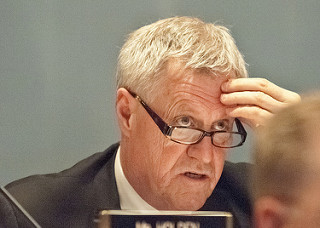
Rep. Collin Peterson, D-Minn.
His relationship with Chairman Mike Conaway, R-Texas, hasn’t been as close, and Peterson has complained that Conaway brought out a farm bill this spring that Democrats couldn’t support because of its SNAP provisions. GOP critics accused Peterson of doing Pelosi’s bidding to make the process partisan.
Peterson’s sprawling district in western Minnesota ranks fourth in agricultural production nationally, based on the 2012 agricultural census.
APPROPRIATIONS
Funds all government departments and agencies for each fiscal year.
Likely Democratic chairwoman: Nita Lowey of New York.
Ideology: She voted against President Trump’s positions 86 percent of the time in 2017 and had a perfect score with the League of Conservation Voters. She has a lifetime score of 97 percent with Food Policy Action.
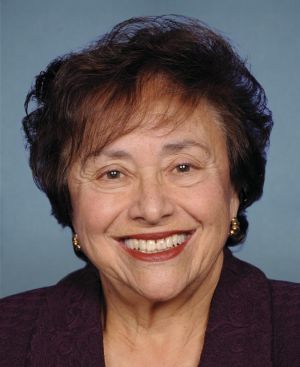
Rep. Nita Lowey, D-N.Y.
Lowey, who was first elected in 1988, finally got her party’s top spot on the committee in 2013, just in time to deal with the fiscal 2014 appropriations process that saw a government shutdown in the fall of the year after Republicans tried to shut down Obamacare.
A native of the Bronx – she grew up blocks from Yankee Stadium – she has continually fought Republicans over policy riders on a variety of issues important to agriculture, including provisions to rescind the Obama-era “waters of the U.S.” rule and funding for consumer education on biotechnology. She said the FDA shouldn’t be “in the pro-industry advertising business,” but the $3 million biotech initiative ultimately became law over her objections.
AGRICULTURE APPROPRIATIONS SUBCOMMITTEE
Writes annual funding bills for USDA (except for the Forest Service), FDA and the CFTC.
Likely Democratic chairman: Sanford Bishop of Georgia.
Ideology rating: He voted against Trump 75 percent of the time in 2017 and earned a score of 69 percent with the League of Conservation Voters. He has a lifetime score of 65 percent with Food Policy Action.
While not as far to the right as Peterson, Bishop also is a Blue Dog and one of the more conservative members of the Congressional Black Caucus and the Democratic conference at large. He is mindful of agricultural interests in his rural district, a region that produces cotton, chickens and peanuts and is one of the top 100 House districts in agricultural production.
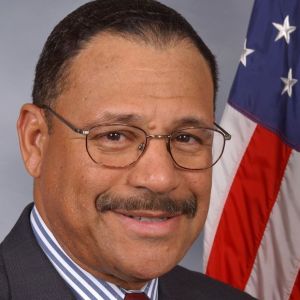
Rep. Sanford Bishop, D-Ga.
Bishop also has a long relationship with Agriculture Secretary Sonny Perdue, a former governor of Georgia. Bishop was at Perdue’s side for his Senate confirmation hearing in March 2017. Bishop said later that “the cooperative relationship we have developed over the years will prove a great asset as we work together to ensure our farmers, ranchers, foresters, agribusinesses, and consumers have the resources they need to prosper in today’s competitive and global environment.”
Bishop, however, recently broke with Perdue over the secretary’s plans to relocate the Economic Research Service and the National Institute of Food and Agriculture out of the nation’s capital. Bishop would have significantly more clout to block that and other proposals from the administration if he takes the subcommittee chairmanship.
The subcommittee includes some members more liberal than Bishop who have an intense interest in agricultural policy: Rosa DeLauro of Connecticut, who has frequently challenged the adequacy of food safety regulations, and Chellie Pingree of Maine, who is one of the most prominent advocates for organic agriculture and local food systems.
INTERIOR-ENVIRONMENT APPROPRIATIONS SUBCOMMITTEE
Writes annual funding bills for EPA, the Interior Department and the Forest Service.
Likely Democratic chair: Betty McCollum of Minnesota.
Ideology rating: Voted against Trump 86 percent of the time in 2017 and had a perfect score of 100 percent with the League of Conservation voters. She has a lifetime score of 94 percent with Food Policy Action.
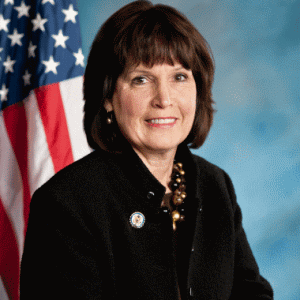
Rep. Betty McCollum, D-Minn.
Unlike Peterson and Bishop, McCollum is solidly aligned with the leftward bent of the Democratic conference. And unlike them, she doesn’t come from a rural area, but rather from St. Paul, long the Democratic core of the state.
She has a strong interest in global affairs, which she attributes to her father, a military veteran, and has been one of the strongest supporters of the Feed the Future initiative.
Environmental groups could count on her as a reliable ally: First elected in 2000, she has a lifetime score of 93 percent with the League of Conservation Voters. She voted against rescinding the Obama WOTUS rule, and she would be certain to keep provisions like that off her committee’s bills.
Pingree also is on this subcommittee.
ENERGY AND COMMERCE
Writes authorizing legislation for and oversees the EPA and FDA as well as energy programs, including the Renewable Fuel Standard, and health policy.
Interested in more news about the farm bill, trade issues, pesticide regulations and more hot topics?
Sign up here for a four-week Agri-Pulse free trial. No risk and no obligation to pay.
Likely Democratic chairman: Frank Pallone of New Jersey.
Ideology: He opposed Trump 92 percent of the time in 2017 and had a perfect rating of 100 percent with the League of Conservation Voters. He has a lifetime score of 94 percent from Food Policy Action.
Because of its jurisdiction, Energy and Commerce arguably has as much impact on farmers and ranchers as the Agriculture Committee, but it is far more partisan. Energy and Commerce seats have long been prized by lawmakers, in part because the panel's broad jurisdiction attracts campaign donations.
Democrats on the committee are more representative of the party, often coming from heavily urban and minority areas, and Frank Pallone reflects that. Pallone, a lawyer who was first elected to the House in 1988, is a member of the Progressive Caucus, the antithesis of the Blue Dogs. His district lies in the New York suburbs.
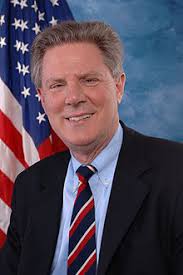
Rep. Frank Pallone, D-N.J.
A clue to his views and legislative priorities can be found in a bill that he and DeLauro introduced earlier this year, the Food Labeling Modernization Act of 2018. The bill would significantly tighten the regulation of food labeling, including by limiting the use of the terms “natural” and “healthy.”
A committee member to watch: Kurt Schrader of Oregon, a veterinarian and former Agriculture Committee member.
JUDICIARY
Writes immigration policy and oversees the Justice Department.
Likely Democratic chairman: Jerry Nadler of New York.
Ideology: He voted against Trump 89 percent of the time in 2017 and had a perfect score with the League of Conservation Voters. He also has a perfect lifetime score with Food Policy Action.
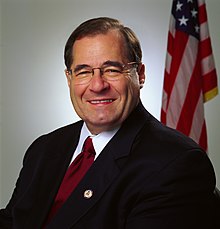
Rep. Jerry Nadler, D-N.Y.
Judiciary is already one of the most partisan committees in the House, and if Democrats were to pursue impeaching the president this is the panel that would handle it. It’s importance to agriculture is enormous because of its responsibility for immigration policy.
The committee splintered badly over a bill that current Chairman Bob Goodlatte introduced to replace the H-2A visa program for foreign farmworkers. The bill only got out of committee because some of the most conservative GOP members skipped the vote. All the Democrats opposed it, but even so, few attacked it as bitterly as Nadler, who has represented a wealthy Manhattan district since his election 26 years ago. He called the Goodlatte bill “immoral” and said it would turn H-2A into a “slave labor system” in which farmers would be allowed to “exploit” foreign workers.
NATURAL RESOURCES
Writes authorization legislation for the Interior Department, including the Fish and Wildfire Service. Jurisdiction includes the Endangered Species Act.
Likely Democratic chairman: Raul Grijalva of Arizona.
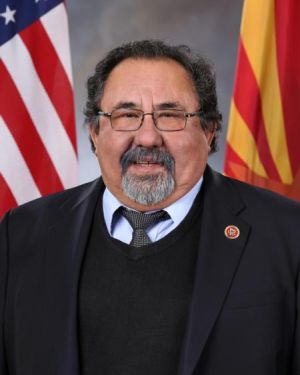
Rep. Raul Grijalva, D-Ariz.
Ideology: He voted against Trump 89 percent of the time in 2017, and got a perfect score from the League of Conservation Voters. He has a lifetime score of 97 percent from Food Policy Action.
This committee is particularly important to Western farmers and ranchers and energy producers because of its jurisdiction over federal lands and the Endangered Species Act. The current chairman, Rob Bishop of Utah, is a reliable ally of agricultural interests. The outspoken Grijalva, a reliable ally of environmental groups who was first elected in 2002, would shift the committee significantly to the left and could be expected to vigorously take on Interior Secretary Ryan Zinke.
Grijalva has been a staunch defender of the ESA, and his office bio describes his legislative priorities as including “protecting wildlife from possible extinction and promoting animal rights.”
He is the son of a Mexican immigrant who first came to the United States as a farm laborer under the bracero program. His district sprawls along the Arizona-Mexico border south of Phoenix and includes a portion of the Yuma area, a heavily agricultural region.
RULES
The committee majority works with its party leadership to write rules for floor debates, including deciding which amendments will receive consideration.
Likely Democratic chairman: Jim McGovern of Massachusetts.
Ideology: He voted against Trump 89 percent of the time and had a perfect score with the League of Conservation Voters. His lifetime score with Food Policy Action is 99 percent.
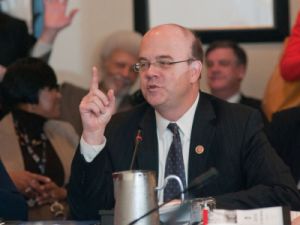
Rep. Jim McGovern, D-Mass.
Rules may be the most powerful committee few people know anything about. From an office across a hall from the House gallery, McGovern would work with Democratic leaders and committee chairmen to decide what amendments get votes on bills that are on the floor. During the 2014 farm bill debate, Chairman Pete Sessions, R-Texas, made sure that virtually no amendments to cut farm programs or crop insurance got a vote if they had any real chance of being adopted.
First elected to the House in 1996, the fiery McGovern is a favorite with anti-hunger groups because of his passionate advocacy for domestic and international food assistance programs. But he has been something of a gadfly on the House Agriculture Committee, where he is the ranking Democrat on the nutrition subcommittee, and where he was the most outspoken Democratic critic of the Republican push to tighten work requirements on the Supplemental Nutrition Assistance Program. McGovern is no relation to the late Sen. George McGovern, D-S.D., but has eagerly tried to take up his mantle as top congressional hunger fighter.
WAYS AND MEANS
Writes tax and trade laws and must act on new trade agreements under Trade Promotion Authority.
Likely Democratic chairman: Richard Neal of Massachusetts.
Ideology: He voted against Trump 86 percent of the time in 2017 and had a perfect score with the League of Conservation Voters. He has a lifetime score of 94 percent with Food Policy Action.
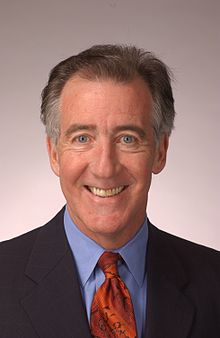
Rep. Richard Neal, D-Mass.
One of the first jobs he would face as chairman of Ways and Means is the approval or disapproval of Trump’s United States Mexico Canada Agreement. But Neal, who was first elected to Congress three decades ago, has often opposed new trade agreements. He voted against the original North American Free Trade Agreement in 1993 and in 2015 against approving the president’s fast-track trade power, or trade promotion authority.
Neal indicated that he planned to oppose the Trans-Pacific Partnership, the 12-nation deal that President Obama negotiated and Trump later scrapped.
Among the Democrats on the committee that agricultural interests would have to lean on is Ron Kind of Wisconsin, the No. 2 Democrat on the trade subcommittee.
For more news, go to: www.Agri-Pulse.com.


